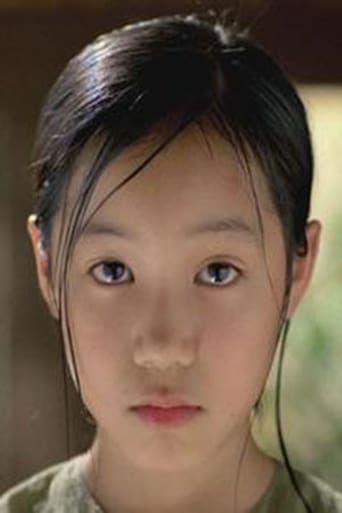Actuakers
One of my all time favorites.
Gurlyndrobb
While it doesn't offer any answers, it both thrills and makes you think.
Arianna Moses
Let me be very fair here, this is not the best movie in my opinion. But, this movie is fun, it has purpose and is very enjoyable to watch.
Tymon Sutton
The acting is good, and the firecracker script has some excellent ideas.
SnoopyStyle
It's 1951 Saigon. Ten year old girl Mui arrives to work in an upper class troubled family. There are three son, the youngest being a brat. The grandmother is secluded upstairs. The father is often absent haunted by the death of his young daughter. The mother is concern when he leaves once again taking all of the money. Ten years later, the family has fallen on hard times. Mui becomes a servant of the oldest son's pianist friend.The story is intriguing at first but it's a little slow. It's all very gentle and the tension is low. The most compelling is the unique lush artificiality to the style. It's obvious that this is made on a soundstage. The sound design adds a layer of the tropical world to this movie. It's a strange unreal reality.
orinocowomble
If your taste runs to action blockbusters, this film is not for you. The Scent of Green Papaya is the sort of film that repays patient observation, and lends itself to repeated viewings. I'm not an "intellectual"--I will admit I had to take a couple of runs at this film before I understood what I was seeing. The first time, I turned it off 20 min. into it, saying, "Nothing's happening here!" That's true, if you're used to Western films that are driven by action and dialog. Like many Asian films, TSOGP is instead driven by inter-action between characters and observation. The camera functions as an "eye" to show us life from the character's point of view. After seeing the entire film, I became aware that it had become a part of my mental furnishings; I realised I was spending quite a lot of time thinking about it in the following days. I'm told by those who live with me that the highest compliment I can give a film are the words, "I need to see it again." And I do--I need to buy a copy and see it several more times.Ten year old Miu is sent from her home village to Saigon to work as a servant in a cloth merchant's household. She is fascinated by their beautiful home and its furnishings, the papaya tree in the courtyard, and how very different their lifestyle is to what she has known. The youngest son of the family sees her arrival as a golden opportunity--at last someone is lower on the family totem-pole than himself, and he tries to bully Miu in various ways. However, his attempts fall flat as he never gets much of a reaction; in her innocence, Miu accepts events as they come, never trying to assign blame or "tell" on him. If a jar gets broken, she accepts it is her fault; if a pail of dirty water gets upended or "someone" pees all over a clean floor, she cleans it up without a word. Her employer's wife soon sees her as a surrogate daughter, someone to fill the void of her own daughter's death and her own loveless marriage to a spendthrift husband who abandons the family for weeks at a time and comes home empty handed.Ten years later, Miu is sent to work for a family friend, a young man she has long admired. His relationship with a spoiled girl of his own class flickers out as he becomes more aware of Miu's quiet presence in his life. All of the "action" of the film is crammed into the last 30 min, as we see the results of his growing awareness and its transforming effect. The film is stunning to look at, as usual in much of Asian cinema. If I had one complaint, it was the soundtrack; not the traditional Vietnamese music played by father and son at the beginning of the story, but the tortuous "contemporary" Western music in the second half, including a dreadful rendition of Debussy's Claire de Lune--as if an alley cat were trying to play the violin on its own cat-guts. The caterwauling added nothing to the film, and only served as an irritating distraction. This is what caused me to lower my rating of this otherwise fine film.
Lisa Easterling
If you like a simple story with a happy ending and beautiful filming, The Scent of Green Papaya is for you. There is an unparalleled aesthetic and soothing quality to the film that traces the life of Mui, a peasant girl sent to Saigon to work for a well-to-do merchant family, and her new "family." Mui is a calm, peaceful soul, filled with happiness and joy. She teaches us to find the beautiful in the everyday and is an interesting contrast to the sons in the family, one who destroys the life around him and another who seeks to torment Mui relentlessly. The story line is simple and the scenery does not change much. Yet, each frame captures the unique details of the objects and people within the frame. This serves as a reminder to look around one's everyday environment and enjoy the aesthetics and life found there. Although obviously filmed on set and not within the natural environment, watching this film was like walking through a hidden botanical garden in a bustling city...full of treasures that delight the eyes and calm the soul.
smythe_23
The Scent of Green Papaya is one of those films that is easy to enjoy no matter where you're from. A visually striking film that utilizes setting and cinematography over dialogue, it's easy to see why it did so well internationally. I can't think of many films that can totally relax me and clear my mind- something that is only possible when I'm completely engulfed and not bothered by massive amounts of dialogue. Since the visuals tell most of the story, we're left with a very deep film that isn't tedious or overbearing so that we can focus without trying to read lots of subtitles or follow ten different things on screen at once. The simple but elaborate set style adds to the "film as a universal" feeling that I got while watching it. Focusing on one thing in Papaya is rather hard as it really works well as a sum of its parts. Without the incredible cinematography, the story would probably be lost on most audiences. Without the beautiful sets that the actors mesh with so well, you'd be pulled out of the reality of the film. Without the great acting (especially by the actresses that play Mui), the film falls flat on its face. It's one of those movies that seems to (and this happens at least once or twice a year for me) completely reshape my idea of what a film can and can't be. It's kind of like pot for the eyes. It seems that most movies these days (and this is a broad generalization) are just glorified plays. If you could find someone that would sit through this as a play for 90 minutes, well, they're just stupid. Maybe that's a little bit harsh, but at the least they'd have to be pretty patient people. I have a hard time believing that it could work.*Very Mild Spoilers In the Third Paragraph* To me, the best films are ones that are deep enough that they require multiple viewings to truly understand, but not so deep that I feel lost and turned off from (see: Goodbye South, Goodbye). The first thing I noticed about Papaya was the wonderful use of background noise. I originally thought it was a bit annoying, but as the film pushed on, the cricket in a cage theme fleshed out as a major part of the story. When Mui opens the door on the little cage right before she leaves the house she spent half her life in, and the cricket sticks to the door I saw the connection to her life. It's wholly depressing that the mother is in fact losing her surrogate daughter and Mui seems very uncertain about what her future holds when she leaves. She is the caged cricket that is scared to leave its home. The transformation she makes in her new surroundings is only possible because she took that step- she leaves the nest. Also, the background noise plays an important part in what is going in the film, but only in that it's never discussed. The jets flying over the house in the second part of the film adds to the setting even more because there is no need to mention it- we are too caught up in Mui's transformation into a woman to care about wars and such. Not resorting to explanatory dialogue when most filmmakers would is something that makes Tran Anh Hung an exciting and original filmmaker. He's the anti Godard in a sense (no way can I actually back up that statement as I've only seen a couple of Godard's older movies- but from what I know, this seems like a logical jump).The Scent of Green Papaya isn't necessarily one of the best movies I've ever seen, but it sure is one of the most original. I think that pretty much anyone could make at least a decent film with the proper training, but films like Papaya are a testament to true vision and talent. You give this script to anyone else and you'd end up with a vastly different film. If that's not voice, I don't know what is.


